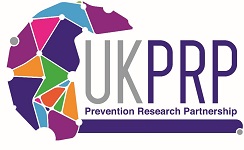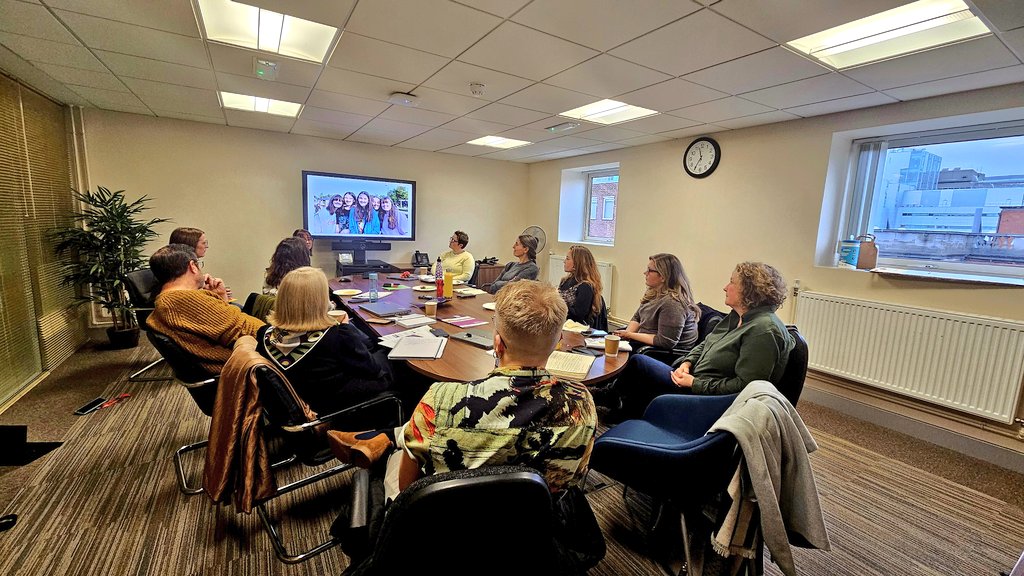Visualising how we can prevent violence against women and girls in outdoor public spaces in Belfast
Dr Sophie Jones reflects on the process of working with partners to develop a systems map to build a shared understanding of preventing VAWG in outdoor public spaces in Belfast
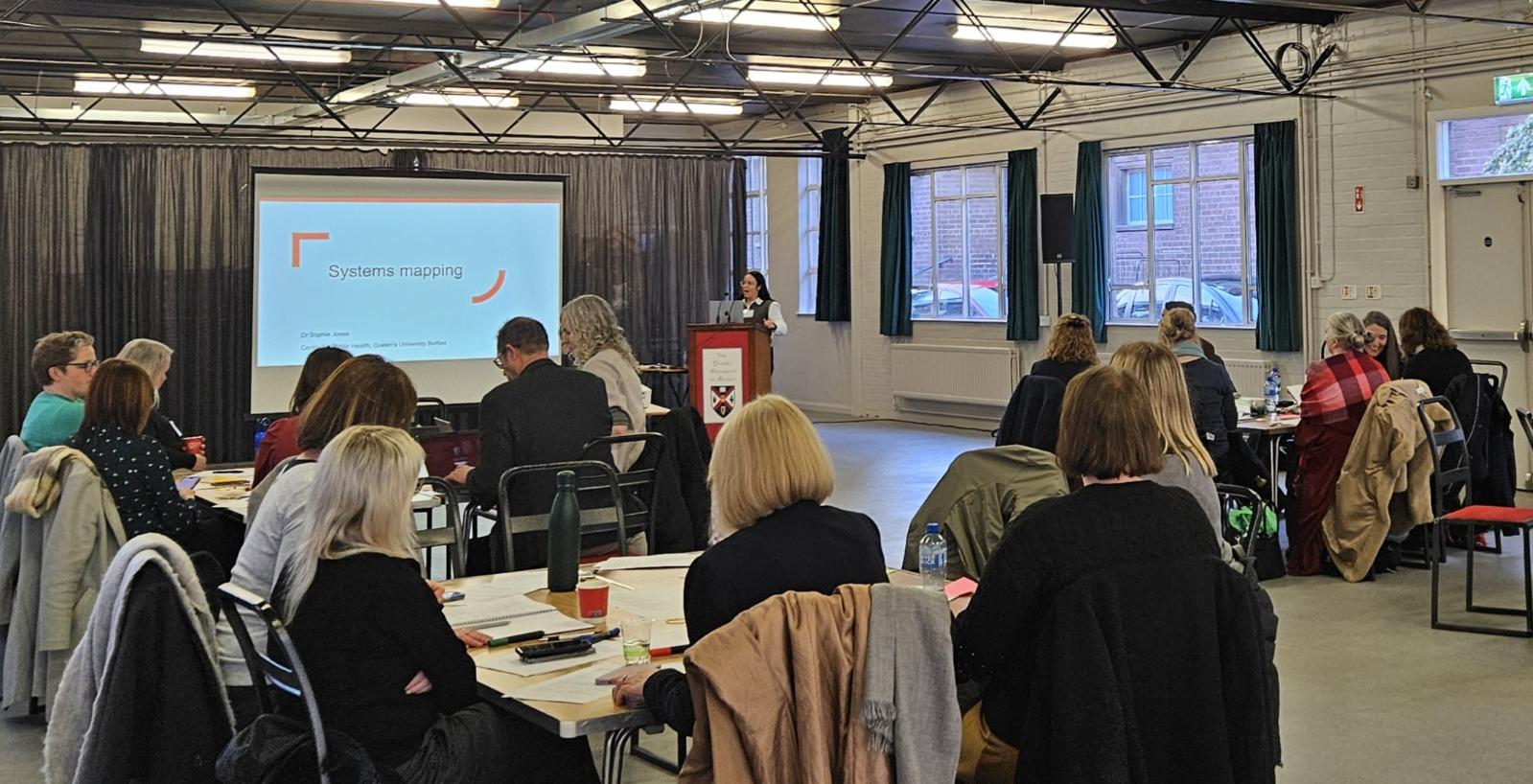
Earlier this year, we carried out workshops to engage interested parties from various sectors across Belfast to address a critical challenge: how can we prevent violence against women and girls (VAWG) in outdoor public spaces in Belfast? Over the course of two full-day sessions, these workshops aimed to co-develop a systems map with key individuals from organisations who have an interest in preventing VAWG, to build a shared understanding of the physical, social, cultural, economic, and political environments that could inform the prevention of VAWG in outdoor public spaces in Belfast. Our goal with these workshops was not only to understand the factors influencing this challenge, but also to use the systems map as a foundation for identifying action and priority points for policies and interventions to improve safety for women and girls in outdoor public spaces – such as parks, greenways and public squares – in Belfast.
Partnership working
In late 2023, a team of researchers from GroundsWell first met with key individuals who work in the VAWG space from Belfast City Council and the community and voluntary sector to begin discussions on preventing VAWG in outdoor public spaces. In subsequent meetings, the group would hear from the Executive Office on their Strategic Framework to end VAWG, from the Women’s Resource and Development Agency on their experience in the policy sphere, and from the Police Service of Northern Ireland on the reality of the VAWG on the ground, among others. Building on these discussions, the team co-developed a research proposal with partners and successfully applied for further funding to explore prevention of VAWG in outdoor public spaces in Belfast, which was awarded by the UK Medical Research Council’s Public Health Intervention Development scheme (PHIND).
The overarching aims of the project are to work with women, girls, and other individuals from key organisations to design and develop interventions to prevent VAWG in outdoor public spaces in Belfast. The interventions will inform design of outdoor public spaces and how the public use them, and change the attitudes, behaviours, and social and cultural norms of people (including men and boys) living in Belfast. To achieve this, we are adopting a system-orientated approach – incorporating systems thinking - to help orchestrate a multi-sectoral, multi-policy action plan, which will directly benefit the health and wellbeing of women and girls through preventing violence, abuse, and harassment in public spaces.
Systems mapping
Systems thinking refers to making sense of real-world challenges by focusing on how different parts of a whole problem interact, as opposed to focusing on parts in isolation. This way of thinking is beneficial, especially when considering complex challenges, which often have multiple factors that interact in dynamic ways; by moving beyond cause-and-effect thinking, to address the broader context of which the problem is situated. There are many different tools to operationalise this way of thinking, one being systems mapping.
Systems mapping is a useful tool to visualise and unpack challenges with multiple dimensions. It helps identify underlying assumptions and draws out the relationships between various factors (such political and attitudinal factors) and understand how these are shaping the challenge of interest. By visualising the multiple parts of the challenge, we are able to build a shared vision not just of the problem, but also of the potential solutions. During the workshops, we provided an introduction to systems, systems thinking, and the process of systems mapping.
The process
When planning these workshops, a core priority for the research team was to create a safe and inclusive environment for discussion. To support this, we collaborated with a diverse group of influential individuals and organisations across sectors, including the community and voluntary sector, statutory bodies, and urban planners, ensuring broad representation of voices and expertise.
While the workshop process was guided by researchers based at Queen’s University Belfast, the sessions themselves were largely led by the groups taking part in the workshops. Using a participatory systems mapping approach, participants identified factors they believed could contribute to preventing VAWG in outdoor public spaces in Belfast and collaboratively built a systems map showing how these factors interact, and where interventions and policies targeting prevention, might be most impactful.
“A very useful way of bringing a wide amount of experience to hear on a complex problem” – Workshop participant
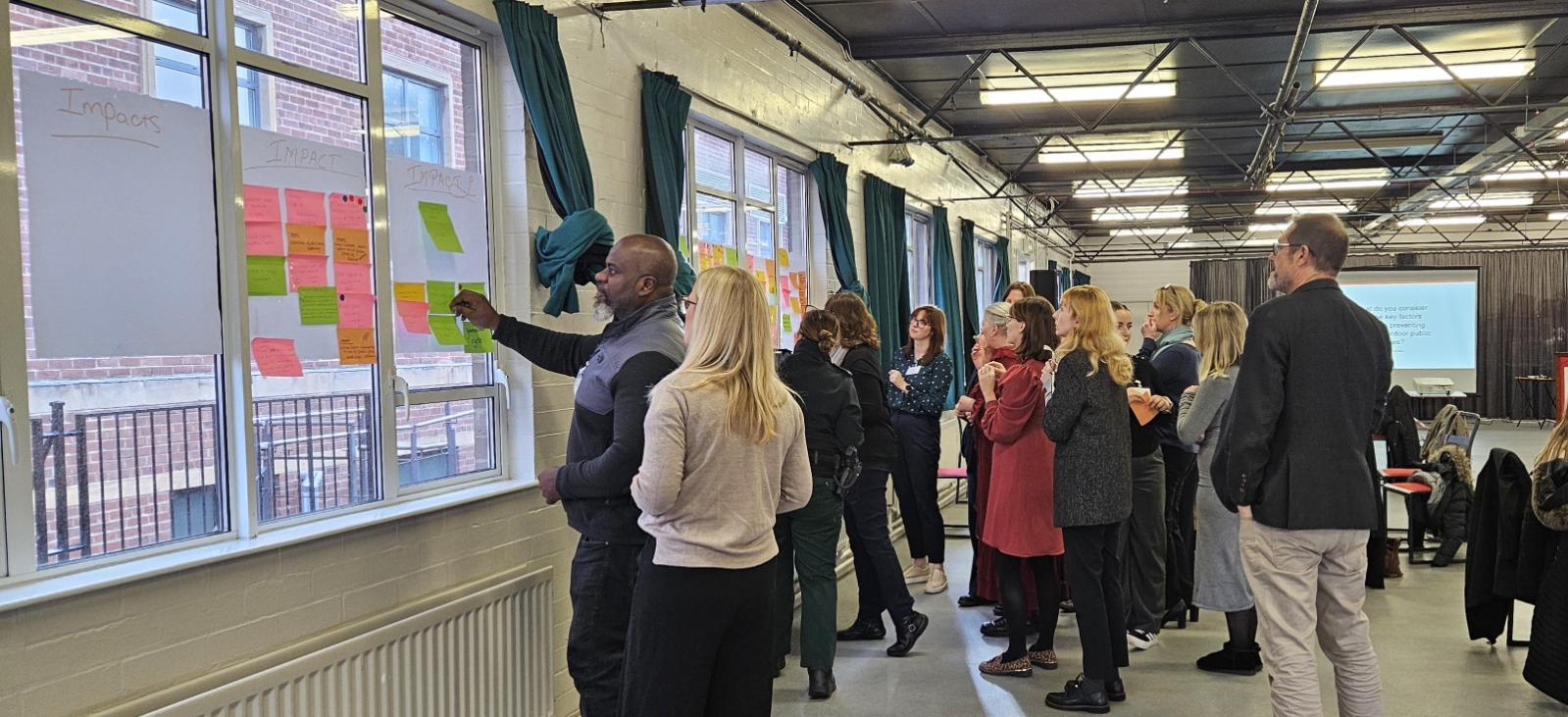
Workshop findings
Throughout the workshop discussions, participants agreed three key themes.
These included
- the need to improve societal education around VAWG in public spaces to challenge what is considered acceptable behaviour (including attitudes and social norms towards VAWG)
- the importance of designing outdoor public spaces to be inclusive and safe from the outset
- the value of maintaining and managing these spaces in ways that enable women and girls to move freely without the threat of violence or harassment.
Through acknowledging these themes that span across multiple different sectors, workshop participants recognised that preventing VAWG in public spaces requires addressing not just physical infrastructure but also cultural attitudes, service provision, and governance structures and will be the responsibility of many different sectors.
“This workshop has been incredibly informative to strip back the complex layers surrounding this area, as well as an opportunity to learn from others in the room. Recognising the key factors that influence VAWG helps build on change to end this issue” – Workshop participant
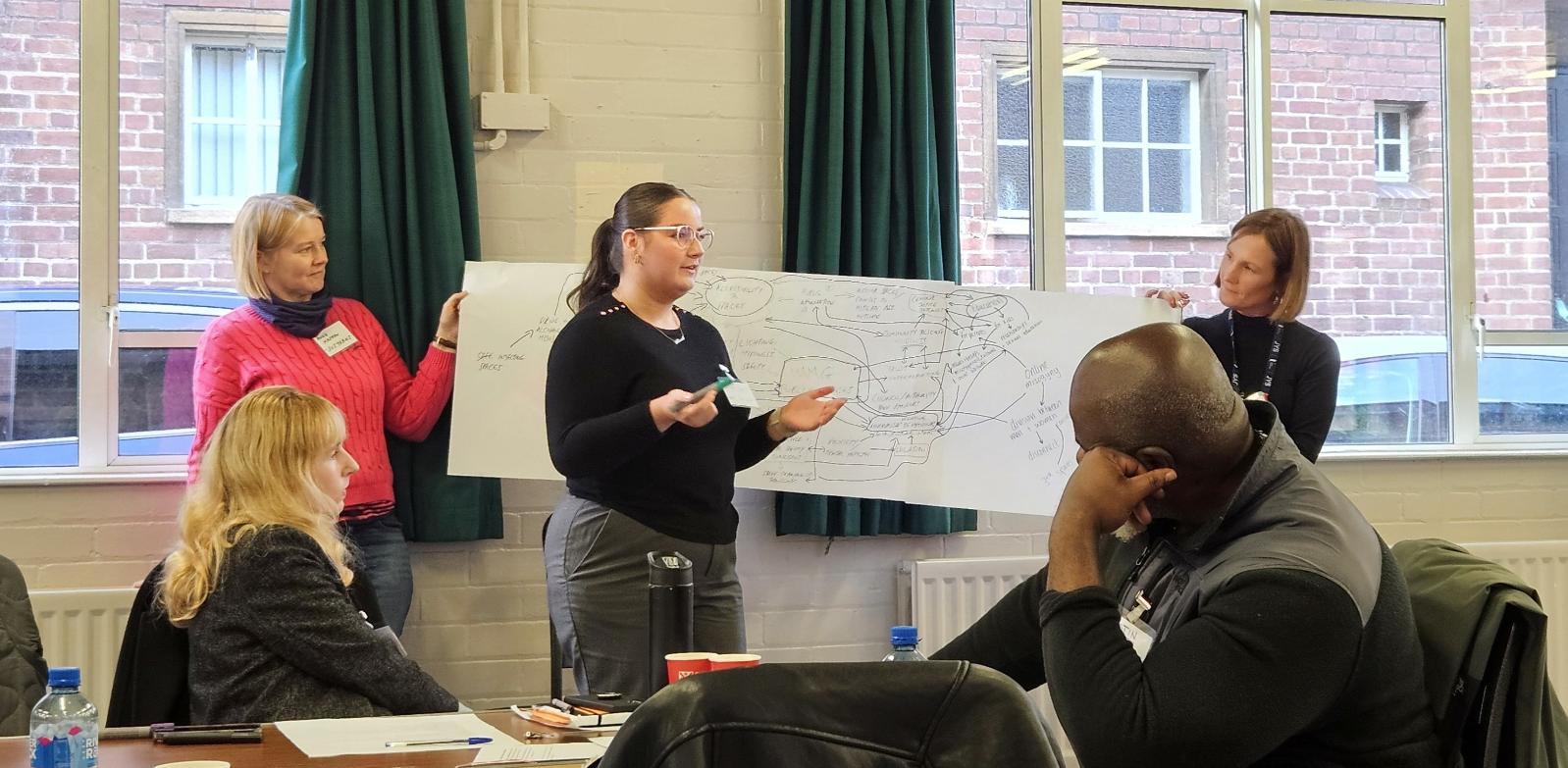
Collaboration and future direction
Following the completion of the workshops, we held a plenary session with participants to gain insight about their experience of taking part in the workshops, and what would be helpful for dissemination going forward. During this session, participants highlighted the benefit of taking a systems lens to this challenge in order to begin to understand what is fully needed to prevent VAWG in outdoor public spaces in Belfast; and additionally the benefit of bringing together a wide range of experience to listen and learn from each other. With this latter point in mind, it is hoped that in addition to producing the systems map, bringing together interested parties through this process has laid a foundation for future collaboration and joined up action.
As we continue this work, the systems map will serve as a living resource which could be used for guiding discussions around policies, interventions, and funding priorities in Belfast. Additionally, in the next phase of the research the actions and priority points will be sense-checked with members of the public and taken to intervention co-design workshops to fully realise what is needed to create safer environments for women and girls in Belfast.
“The workshop provided an excellent opportunity to work and discuss ideas with organisations to address Ending VAWG” – Workshop participant
The finalised systems map along with a more detailed breakdown of the process involved in the workshops can be found here.
This research is funded by the UK Medical Research Council’s Public Health Intervention Development scheme (PHIND), award number UKRI158. UK Medical Research Council’s Public Health Intervention Development (PHIND) (award number UKRI158). This work was supported by the UK Prevention Research Partnership (MR/V049704/1).

